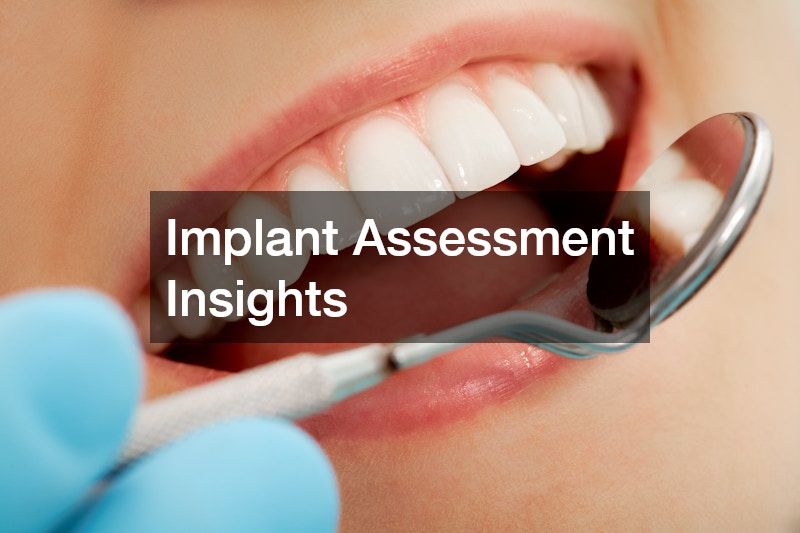
The best dental exams are more than just routine check-ups; they are comprehensive assessments that reveal crucial insights into your oral health. In this article, we will delve into ten critical areas that the best dental exams cover, providing you with a clearer understanding of what to expect. From ensuring equipment accuracy to wisdom teeth insights, every aspect is crucial to maintain optimal oral health. By understanding these elements, you can better appreciate the value that comprehensive dental exams bring to your overall health and well-being. As we explore each area, remember that the best dental exams involve collaboration between you and your dentist to ensure your mouth is healthy, functional, and aesthetically pleasing.
Ensuring Equipment Accuracy
A crucial aspect of the best dental exams is ensuring that all equipment used is accurate and well-maintained. The precision of dental equipment is vital for conducting exams that reliably assess and diagnose oral health conditions. Regular dental equipment repair is necessary to keep tools in optimal condition, ensuring the highest level of care during exams.
The best dental exams rely heavily on the accuracy and reliability of the tools used by dental professionals. Whether it’s an X-ray machine or a simple dental explorer, each piece of equipment needs to function correctly to provide valid results. Dental equipment repair is integral to maintaining these standards, preventing errors in diagnosis that could lead to ineffective treatment.
Failure to ensure equipment accuracy can compromise the entire dental exam process. It could result in misdiagnosis or the failure to detect emerging oral health issues, leading to severe problems over time. By prioritizing dental equipment repair, clinics uphold the integrity of their service, ultimately safeguarding patient health and providing the best dental exams possible.
Implant Assessment Insights

The assessment of dental implants is a significant component of dental exams. Implants are long-term solutions for missing teeth, and their success depends largely on regular monitoring and evaluation. During these exams, dental professionals can identify potential issues before they escalate, ensuring the longevity and effectiveness of the dental implant.
When conducting dental exams, attention to dental implant health is essential. This involves evaluating the condition of the implant site, checking for signs of infection or bone loss, and ensuring the implant is securely integrated. Addressing these factors proactively can prevent complications and ensure the implant remains a viable solution for tooth replacement.
The ability of dental exams to uncover subtle changes around implants can make a considerable difference in a patient’s oral health outcomes. By considering factors such as bone health and tissue response, these exams provide an insightful evaluation of implants, helping to maintain and extend their functionality and appearance.
What Dental Clinics Reveal
Dental clinics are often viewed as centers for routine checkups, but they play a critical role in revealing and addressing oral health issues through the best dental exams. They are equipped to handle a wide range of assessments, from basic cleanings to more complex diagnostic procedures. These facilities are foundational in maintaining oral health and preventing disease.
The best dental exams conducted at a dental clinic can reveal issues that might go unnoticed otherwise. This includes signs of gum disease, early tooth decay, and even precancerous conditions. By utilizing the full spectrum of clinical capabilities, dental professionals can provide thorough evaluations that inform effective treatment plans.
Regular visits to a dental clinic for comprehensive exams are crucial to proactive dental care. By leveraging advanced diagnostic tools and professional expertise, these clinics serve as a frontline defense against oral health issues, ensuring that dental exams contribute to both preventative care and effective intervention when needed.
Emergency Visits and Health

Dental emergencies require prompt attention and can significantly impact overall oral health, making them a crucial consideration in dental exams. Emergency dentist services are designed to address sudden issues such as toothaches, broken teeth, or other acute problems that demand immediate care to prevent long-term damage.
The best dental exams take into account the potential need for emergency services and prepare patients for unforeseen circumstances. Establishing a relationship with an emergency dentist can offer peace of mind and ensure quick, effective treatment should an urgent issue arise. These services are vital for maintaining oral health amidst unexpected challenges.
Understanding when and how to access emergency dental care is an essential component of comprehensive dental health management. By including emergency preparedness in the scope of dental exams, patients can be assured of continuous care, minimizing the impact of emergencies on their overall oral health.
Oral Surgery and Exams
The integration of oral surgery insights into dental exams provides a holistic view of a patient’s oral health. Oral surgery is not limited to extractions; it encompasses a range of procedures for conditions that cannot be resolved through less invasive treatments. Understanding when surgery might be necessary is a key outcome of comprehensive dental evaluations.
During the best dental exams, dental professionals assess the need for oral surgery by examining factors such as impacted teeth, jaw alignment issues, and severe gum disease. This proactive approach allows for timely intervention, minimizing potential complications and promoting quicker recovery.
The capacity of the best dental exams to identify surgical needs and prepare patients for potential procedures reinforces the importance of thorough oral evaluations. By anticipating surgical requirements, dental exams optimize patient outcomes, contributing to both the functional and aesthetic aspects of oral health.
Assessing Invisalign Needs

Invisalign is a popular choice for teeth straightening, and assessing the need for such treatment is an integral part of dental exams. These exams help determine if Invisalign is suitable for a patient, considering personal goals, oral health conditions, and expected outcomes. This tailored approach enhances the efficacy of teeth-straightening efforts.
The best dental exams include a detailed evaluation of Invisalign as an option for correcting alignment issues. This involves examining the current positioning of teeth, oral hygiene habits, and the patient’s commitment to the treatment process. Providing this personalized assessment ensures that Invisalign candidates receive optimal results.
By incorporating a thorough assessment for Invisalign into dental exams, dental professionals can offer tailored solutions for alignment concerns. This approach not only improves aesthetic outcomes but also enhances overall dental health by ensuring that treatment methods align with individual needs and conditions.
Uncovering Root Canal Issues
Best dental exams often identify problems that might require root canals, a critical intervention for saving a tooth that might otherwise need extraction. These exams reveal signs of infection or significant decay, facilitating early intervention that can preserve natural teeth and prevent further complications.
In the context of dental exams, uncovering the need for a root canal involves looking for symptomatic indicators such as severe toothache, sensitivity, or swelling. An accurate diagnosis leads to effective treatment, alleviating pain and restoring tooth function. Root canals are often misunderstood but remain imperative for oral health preservation.
The ability of the best dental exams to pinpoint when a root canal is necessary showcases their importance in comprehensive dental care. By diagnosing issues early and providing timely treatment, these exams play a pivotal role in maintaining dental integrity and patient comfort.
Dentures and Your Exam

The role of dentures in restoring functionality and aesthetics to those with significant tooth loss is valuable, and dental exams carefully assess the suitability and fit of dentures. These evaluations ensure that patients receive solutions that meet their needs effectively, improving the quality of life and oral health.
The best dental exams provide critical insights into when dentures may be the appropriate solution. Detailed assessments appraise the condition of remaining teeth, gum health, and the patient’s ability to adjust to dentures. These examinations ensure that each patient receives a personalized treatment plan tailored to their individual circumstances.
By incorporating denture assessments into dental exams, dental professionals can ensure that patients achieve optimal comfort and functionality. This comprehensive approach enables the creation of prosthetics that significantly enhance oral health and daily living experiences.
Crowns for Dental Care
Dental crowns are an essential tool in oral restoration, protecting weakened teeth and improving aesthetics. During the best dental exams, the necessity for a dental crown is determined by evaluating the strength and integrity of damaged or at-risk teeth. This preventative care initiative helps avert more invasive treatments in the future. Crowns can also restore the full function of a tooth, allowing individuals to chew and speak comfortably without the worry of further damage. Moreover, dental crowns help maintain the alignment of surrounding teeth, preventing shifting that could lead to additional oral health issues.
The need for a dental crown becomes apparent in dental exams through meticulous evaluation of tooth structure and function. Indicators such as extensive decay, fractures, or large fillings are assessed to determine if a crown is warranted, ensuring both protection and aesthetic restoration. Crowns can also be used to secure dental bridges or cover implants, making them a versatile solution for multiple dental needs.
Within the framework of dental exams, assessing the need for a dental crown is vital for long-term dental health strategies. By recognizing when this intervention is required, dentists can offer solutions that protect teeth while enhancing the appearance and durability of dental restorations. This proactive approach not only preserves the natural teeth but also minimizes the risk of requiring more complex procedures, such as root canals or tooth extractions, in the future.
Wisdom Teeth Insight
Evaluation of wisdom teeth is a key component of effective dental exams, providing insight into potential future complications and necessary interventions. Wisdom teeth removal is often recommended when these teeth threaten to disrupt the alignment or health of existing teeth or when they pose risks due to impaction or infection. These teeth typically emerge in late adolescence or early adulthood, and because they are the last to come in, they can cause overcrowding or misalignment of other teeth, especially if there isn’t enough space in the jaw.
The best dental exams meticulously assess the development and placement of wisdom teeth. By identifying when wisdom teeth removal might be necessary, dentists can preemptively tackle issues that could lead to severe discomfort or damage to surrounding teeth. This preemptive strategy highlights the proactive nature of comprehensive evaluations. Regular assessments also help identify whether wisdom teeth are coming in at an angle or are partially erupted, both of which can increase the risk of infection, cysts, or damage to adjacent teeth.
Assessments included in dental exams allow for informed decisions regarding wisdom teeth; whether to monitor or remove them aligns with overall oral health objectives. This preventative approach underscores the importance of these exams in averting complications, maintaining the health and alignment of the entire mouth. Monitoring the eruption and positioning of wisdom teeth ensures that the dental team can determine the ideal time for removal, minimizing potential risks and promoting optimal oral health in the long term.
The best dental exams are comprehensive evaluations that cover a wide array of potential issues and interventions, from equipment accuracy to wisdom teeth insights. These exams are indispensable in maintaining and improving oral health, offering valuable insights that guide personalized treatment plans. Remember, the health of your teeth and gums impacts your overall well-being, and through thorough exams, dental professionals can provide the care and guidance needed to ensure optimal oral health. By continuously prioritizing these exams, you are investing in both your oral health and overall quality of life. Regular visits to the dentist not only help detect early signs of problems like cavities or gum disease but also offer the opportunity to discuss any concerns you may have about your oral care routine. Early detection is often key to preventing more serious issues down the line, saving both time and money. Furthermore, these exams can help you establish a long-term relationship with your dentist, creating a more comfortable and familiar environment for any future treatments. Prioritizing dental exams today is a proactive step toward a healthier and brighter smile for years to come.



